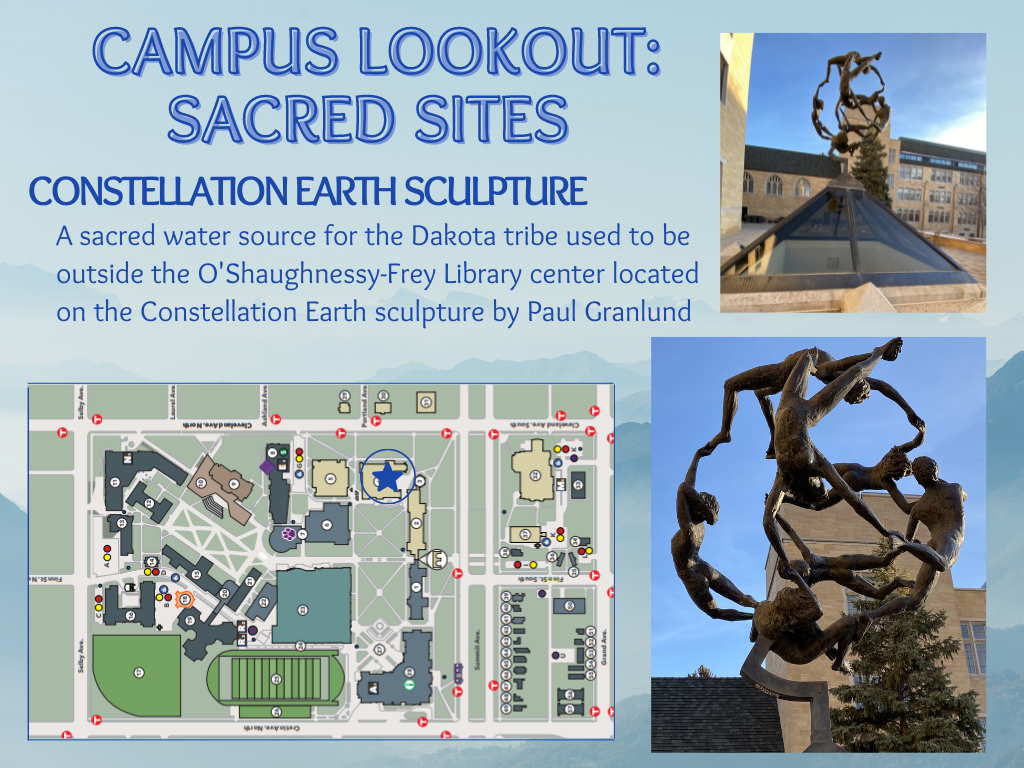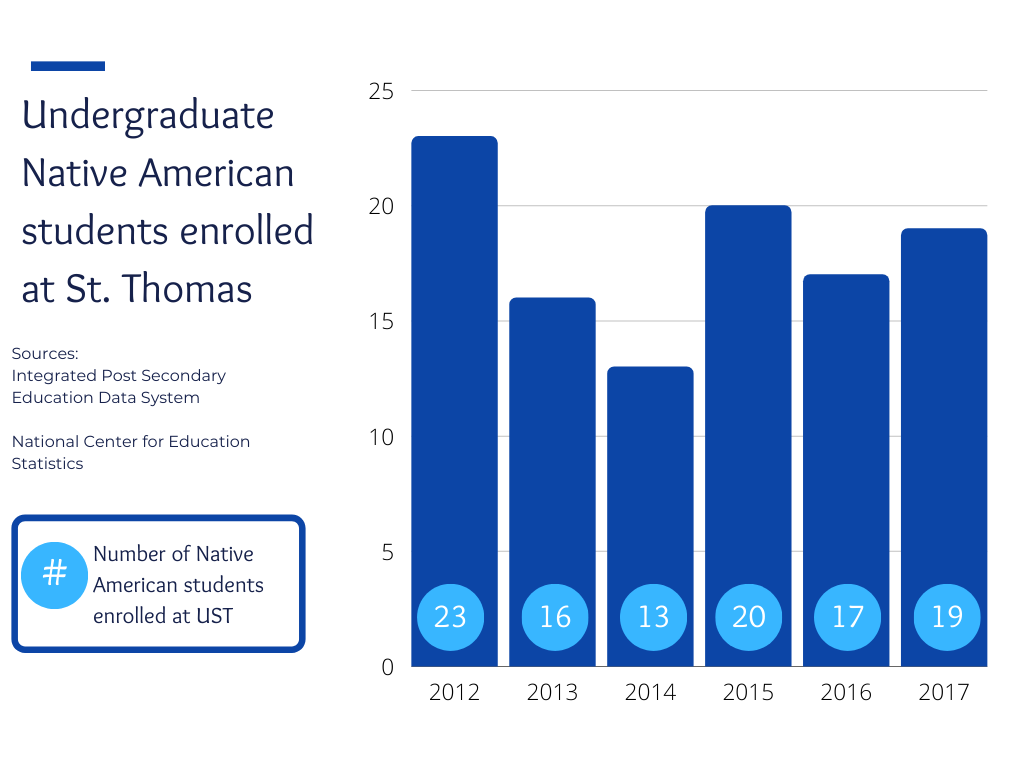
St. Thomas is taking steps to acknowledge that its campus was built on stolen Dakota land by drafting a statement recognizing Dakota history.
The Dakota Land Acknowledgement committee has spent the last 18 months fleshing out a document that states the land acknowledgement. In addition, the committee is planning to feature art pieces, speakers and zoom teach-ins so that the story of the Dakota is told in many different ways.
“We want discussions about people, how they reflect on the land acknowledgement, its use, but (what) could we do to really turn the pages of history and examine where we’ve been,” said Alex Hernandez-Siegel, director of Student Diversity and Inclusion Services and a member of the committee.
The committee grapples with the fact that 1880s Minnesota Gov. Alexander Ramsey believed that Dakota people should be expelled or exterminated. Twenty years later, St. Thomas was founded on a land of Dakota genocide.
“We have a lot of truth telling to do to look back into history to figure out what that situation was about and to tie the past to the present,” said committee member and Justice and Peace professor Mike Klein. “How the university is bound and tied to the Dakota communities in relation to history and contemporary Dakota people is about truth telling first and then about education of our own campus.”
According to Klein, “The university occupies Dakota homelands that were taken from the Dakota by white, American settlers through a series of colonial actions – and finally a campaign of genocide – over much of the 19th century.” Klein added, “The Dakota-U.S. war was in 1862. On September 9 of that year, Gov. Alexander Ramsey gave a speech declaring, ‘the Sioux Indians of Minnesota must be exterminated or driven forever beyond the borders of the state.’”
Klein said he first became aware of anti-racist work during a Peace and Justice Studies Association conference at the University of Winnipeg.
“In Winnipeg, there’s much more of a rich presence of relationship between university and Indigenous communities, and so there were land acknowledgements all over the campus,” Klein said.
According to Klein, Indigenous students on campus have been questioning the university’s relationship with Dakota people. He thinks the low representation of Indigenous students at St. Thomas is likely linked to the university’s inability to celebrate Dakota history.
“We haven’t had a lot of Indigenous students at this university and that’s in part because we haven’t done this work. There are other universities that are more acknowledging and identifying and recognizing of Indigenous students,” Klein said.

Between 2012 and 2019, 0% of Native American students were enrolled at St. Thomas. The percentage of white enrolled students fluctuated between 79-82% during the same span, according to the Integrated Postsecondary Education Data System, a database for information concerning higher ed schools.
The future of this land acknowledgement is expected to create awareness that extends across students’ understanding of the relationship with the land through transparency in the classroom.
“I hope that faculty will be incorporating it into their syllabi so that it shows up in many ways for students and regularly,” Klein said. “I think whenever we are introducing the university to an external audience, or to new students or to new faculty and staff, they’ll hear this acknowledgement as part of their introduction of who we are as a university.”
Graduate Assistant Mads Clark has been working closely with the Dakota Land Acknowledgement committee and with Student Diversity and Inclusion Services since 2019. The committee isn’t rushing to create quick change, Clark said.
“It’s a long time coming, but that’s the reality of the work. Change can be slow, but it’s always going to be worth it,” Clark said.
Hernandez-Siegel called the document a huge step, but certainly not the last.
“This is a statement, but what are the action steps that go with it? And we’re starting to discuss what that looks like,” Hernandez-Siegel said.
Josie Morss can be reached at mors7544@stthomas.edu.
